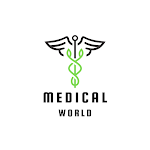Heart Physiology
The Heart
The heart is an essential organ that siphons blood all through the body. It is situated in the chest, somewhat to one side of the midline. The heart is about the size of a clench hand and weighs around 10 ounces in grown-ups.
The heart is comprised of four chambers: two atria and two ventricles. The atria are the upper chambers and the ventricles are the lower chambers. The atria get blood from the body and the ventricles siphon blood out to the body.
The heart has four valves: the mitral valve, the aortic valve, the tricuspid valve, and the pneumonic valve. The valves open and near permit blood to stream in the right bearing
The heart is constrained by the autonomic sensory system. The autonomic sensory system is se parated into two sections: the thoughtful sensory system and the parasympathetic sensory system. The thoughtful sensory system speeds up the pulse and the parasympathetic sensory system dials back the pulse.
The heart is a muscle and it needs oxygen to work. The heart gets its oxygen from the coronary conduits. The coronary conduits are a part of the aorta.
The heart is a vital organ and it is fundamental forever. Without a sound heart, an individual wouldn't have the option to make due
How the Heart Functions
The heart works by contracting and unwinding. At the point when the heart contracts, it siphons blood out to the body. At the point when the heart unwinds, it loads up with blood from the body.
he heart contracts and loosens up in a normal beat. This beat is constrained by the sinoatrial hub (SA hub). The SA hub is a gathering of cells situated in the right chamber. The SA hub sends electrical driving forces to the remainder of the heart, which makes the heart contract.
The heart beats around 100,000 times each day. This implies that the heart beats around 3 billion times in a normal lifetime
What Can Turn out badly With the Heart?
There are numerous things that can turn out badly with the heart. The absolute most normal issues include
Cardiovascular failure:
A cardiovascular failure is a blockage in one of the coronary veins. This blockage can make harm the heart muscle.
cardiovascular breakdown
Cardiovascular breakdown is a condition wherein the heart can't siphon sufficient blood to address the body's issue.
Arrhythmia
An arrhythmia is an unusual heart mood. Arrhythmias can be brought about by various things, including coronary illness, stress, and prescriptions.
Cardiomyopathy
Cardiomyopathy is a sickness of the heart muscle. Cardiomyopathy can make the heart become frail or amplified.
Instructions to Keep Your Heart Sound
There are numerous things you can do to keep your heart solid. Probably the main things include:
Eating a solid eating regimen: A sound eating regimen incorporates a lot of natural products, vegetables, and entire grains. It is likewise essential to restrict your admission of immersed fat, trans fat, cholesterol, and sodium.
Practicing consistently: Exercise assists with keeping your heart solid and sound. Go for the gold 30 minutes of moderate-power practice most days of the week.
Keeping a solid weight: Corpulence is a significant gamble factor for coronary illness. In the event that you are overweight or stout, converse with your primary care physician about ways of shedding pounds.
Not smoking: Smoking is a significant gamble factor for coronary illness. Assuming you smoke, quit.
Overseeing pressure: Stress can add to coronary illness. Track down solid ways of overseeing pressure, like activity, yoga, or reflection.
By following these tips, you can assist with keeping your heart sound and decrease your gamble of coronary illness.
Conclusion:
Heart physiology is a captivating field that provides insights into the extraordinary capabilities of our life-sustaining organ. By delving into the anatomy, function, and intricate mechanisms of the heart, we gain a deeper appreciation for its vital role in maintaining our overall well-being. Whether you have a personal interest in the subject or are pursuing a healthcare profession, understanding heart physiology will undoubtedly enrich your knowledge and contribute to a healthier future.
Remember, our hearts beat in perfect rhythm, propelling us forward on our journey of life, and it is essential to nurture and care for this magnificent engine room of our existence.


0 Comments